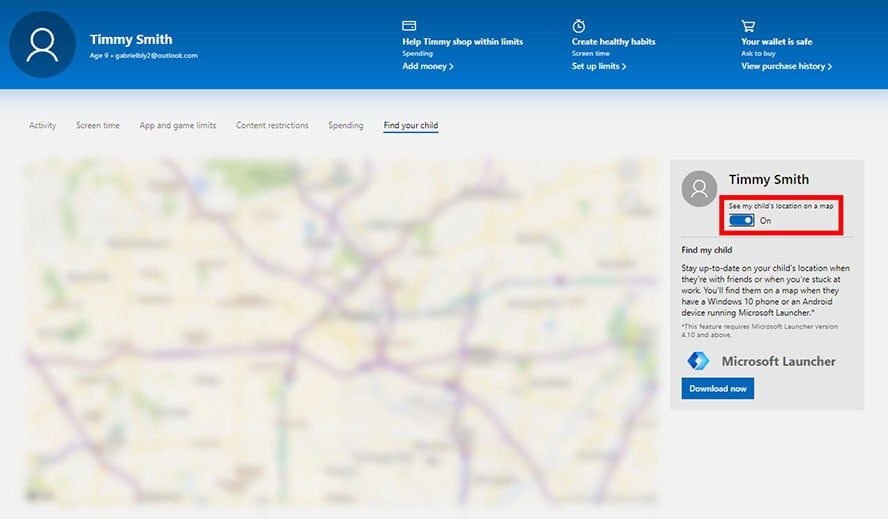These days, it’s hard to protect your kids from seeing inappropriate things online. That’s why it’s so important to know how to set up parental controls on their computer. This allows you to block them from seeing adult content, and it also lets you set up time limits on their computer or Xbox. You can also choose to monitor their online activity to see which sites they are visiting or trying to visit.
In order to set up parental controls for your child, you first have to create a Microsoft account for them. If your child already has a Microsoft account, you can skip the first section, and scroll down to the section on how to set up parental control in Windows 10.
How to Create a Microsoft Account for Your Child in Windows 10
To set up a Microsoft account for your child, go to Start > Settings > Accounts > Family & other users > Add a family member. Then click Add a member and follow the on-screen instructions.
Note: You will have to be signed in to your Microsoft account before you can create one for your child. You can do this by going to the Microsoft account page and clicking Sign in. Then follow the on-screen instructions or click Create one.
- Press the Start button. This is the button with the Windows logo in the bottom-left corner of your screen.
- Then click Settings. This is the gear-shaped icon just above the power button. This will open the Settings window.
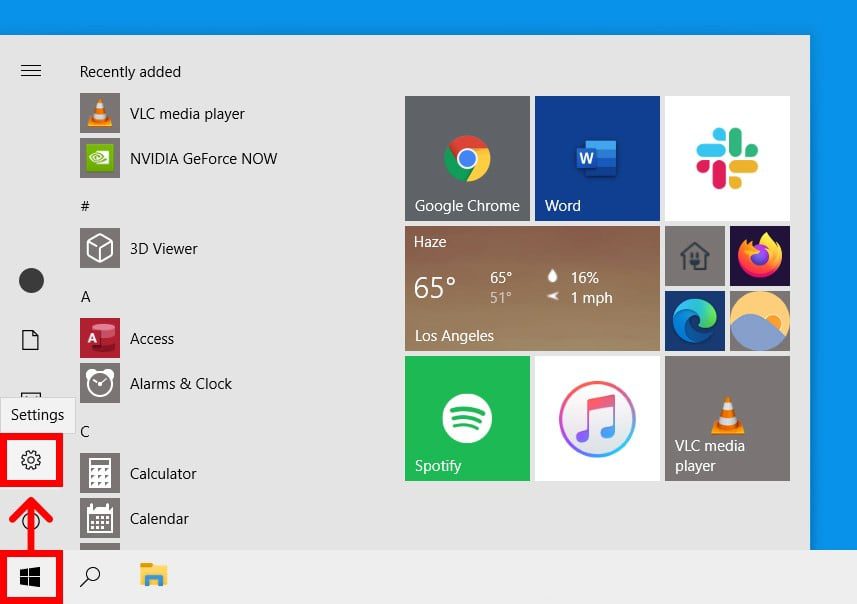
- Next, click Accounts.
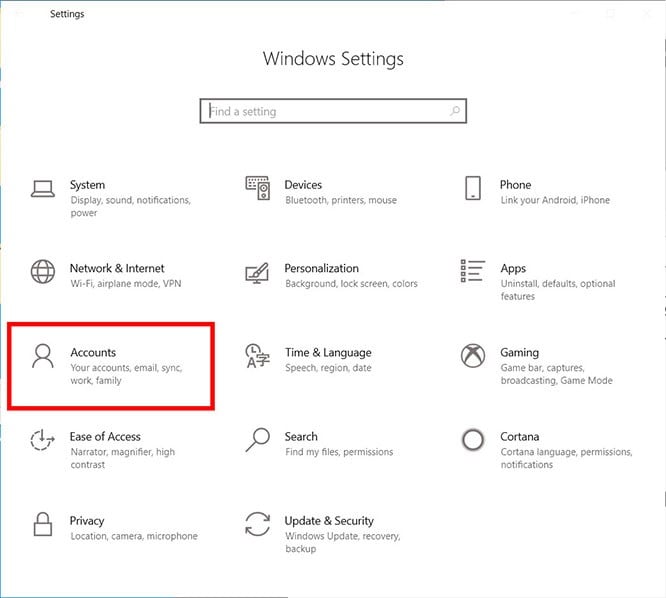
- Then click Family & other users. You will see this in the left sidebar.
- Next, click Add a family member.
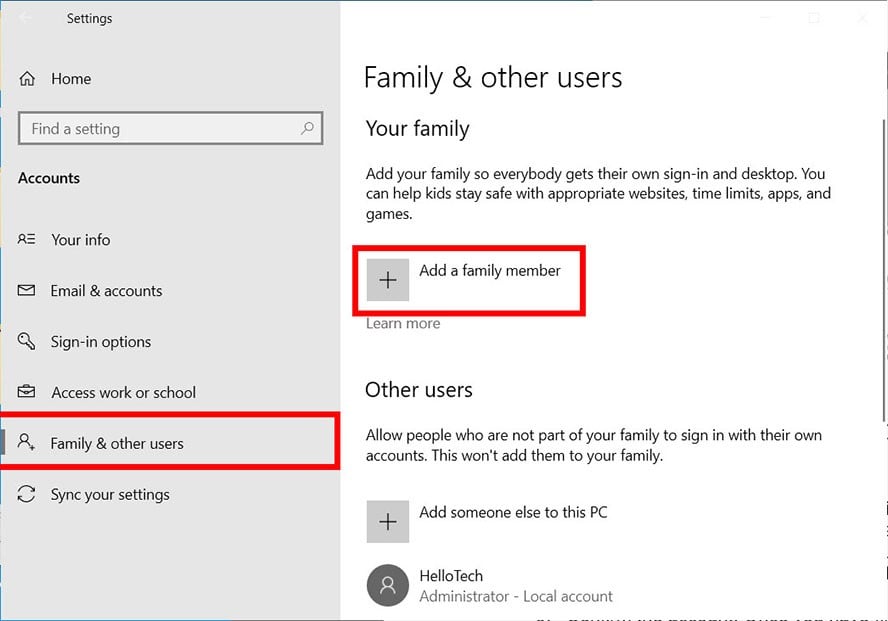
- Then click Add a member.
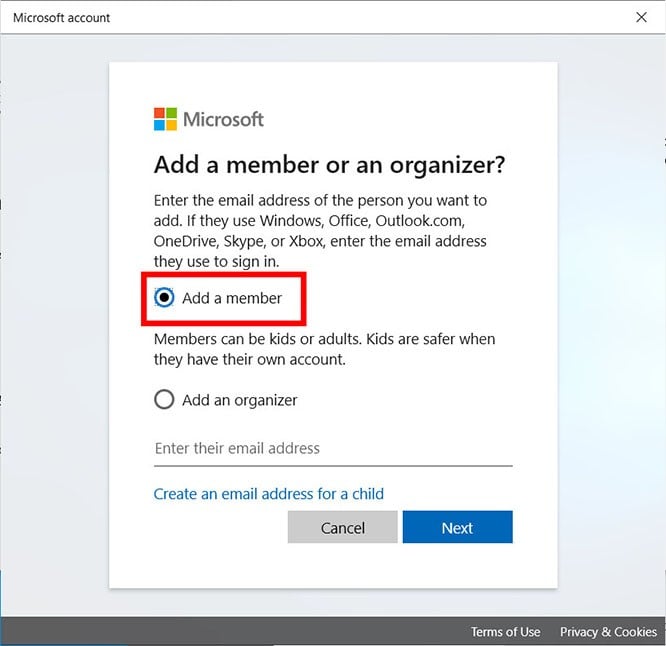
- Enter your child’s email address or click Create an email address for a child and follow the on-screen instructions.
If your child has an existing email address and they are old enough, they will receive an email asking them to accept your invitation. They will then be required to sign in with their Microsoft account password.
If you are creating a new email address, you can only choose an Outlook or a Hotmail email address. Then create a password for your child’s email account. Next, enter your child’s name, country, and date of birth. Next, sign in to your child’s new account with the email address and password that you just created.
Depending on the age of your child, you might have to click on your account or enter your email address in order to confirm their account. You will then receive an email asking you to sign in to your account to give your child permission.
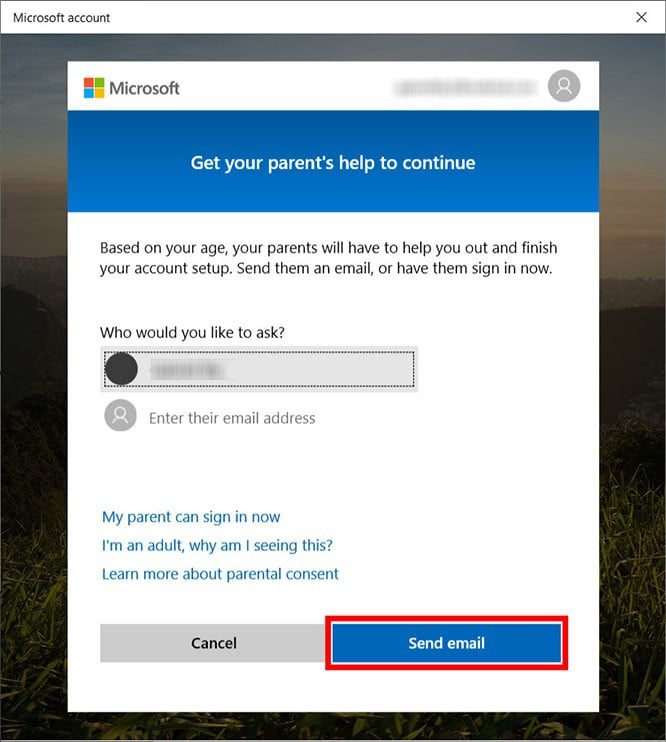
Follow the on-screen instructions and decide whether you want to allow your child to access third-party apps. Finally, click Manage settings to set up parental controls.
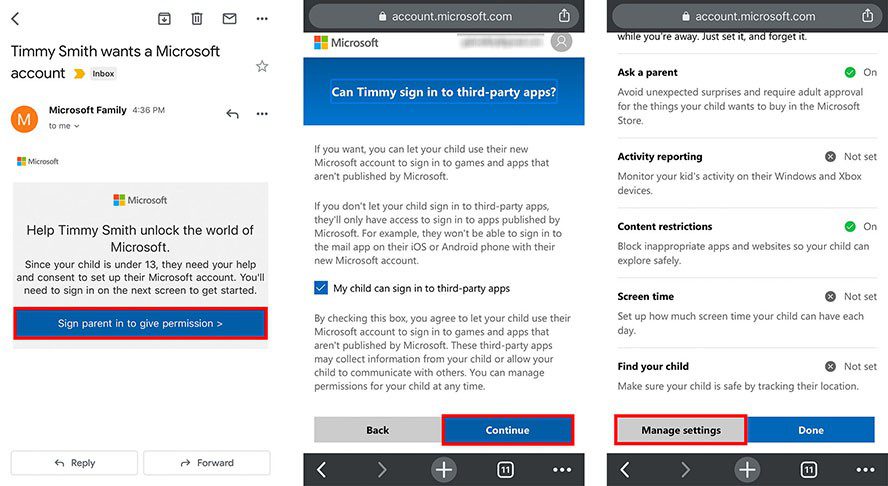
How to Set Up Parental Control in Windows 10
To set up parental controls on a Windows 10 computer, go to family.microsoft.com and sign in. Then find your child’s account and click More options > Content restrictions. Then turn Block inappropriate websites on.
This will block your child from seeing any explicit content online, on any apps, games, and other media. You can also choose to restrict the amount of time they can spend on their computer or Xbox, monitor their online activity, require them to get permission before buying anything online, and see their location on a map.
- Go to family.microsoft.com and sign on with your Microsoft account. If you are not automatically signed in, you can click the Sign in button with the profile icon in the top-right corner of your window. If you don’t see this button, expand your screen. Then enter your username and password.
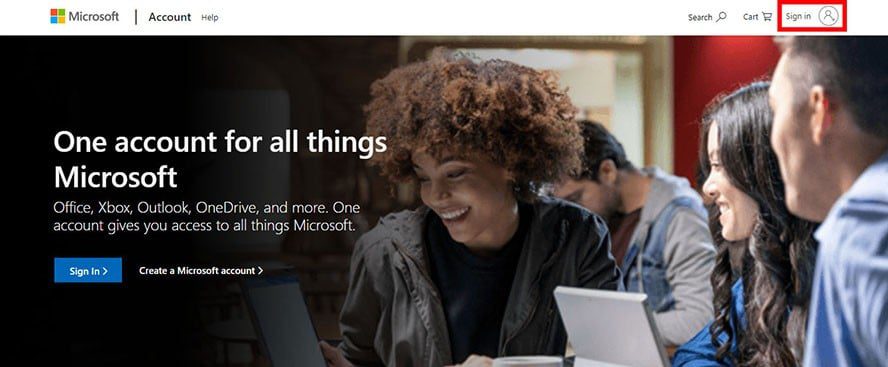
- Then click More options next to your child’s account. If you don’t see your child’s account, check out our previous section to find out how to set up a child’s account.
- Next, click Content Restrictions from the drop-down menu.
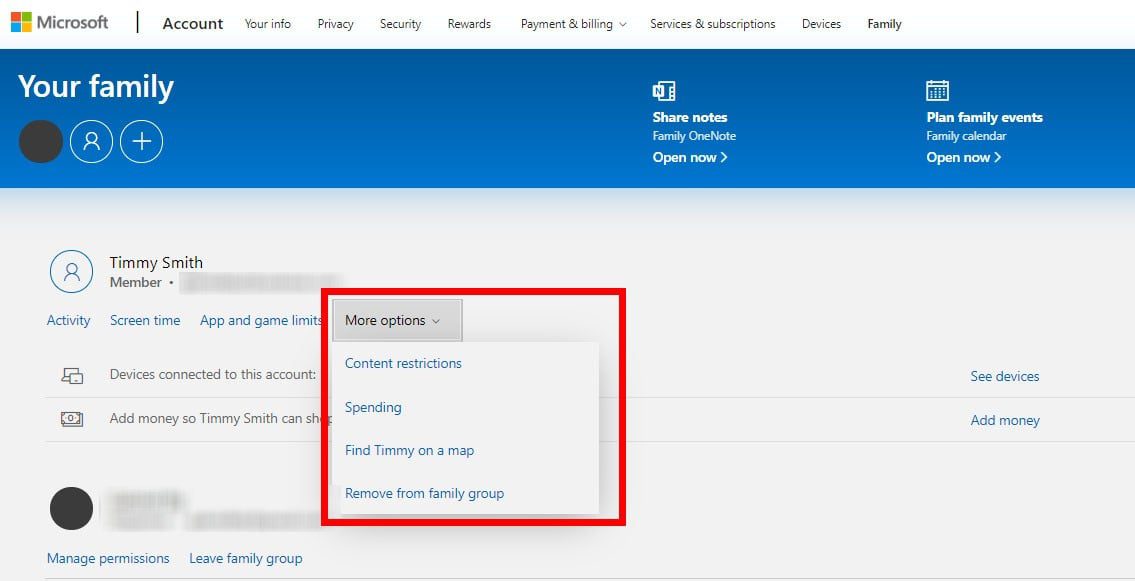
- Scroll down and click the slider next to Web browsing. This will block your child from seeing all inappropriate websites on Microsoft Edge when they are signed into their account.
- Then add websites you want to block in the box under Always blocked. Enter the URL for any site that you want to block and click the plus sign to the right. You can also add sites to the Always allowed section and check the box for Only allow these websites.
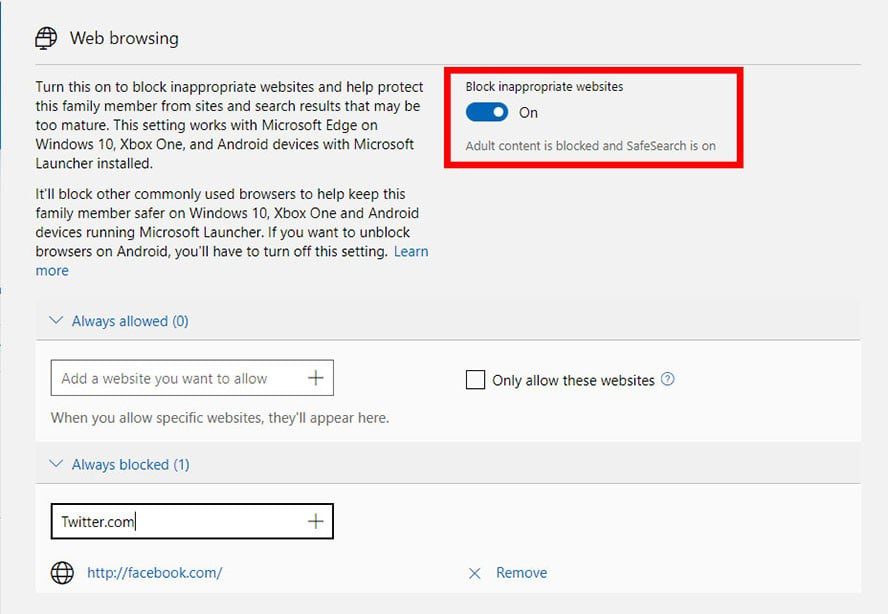
- Next, set an age limit for apps, games, & media. Once you turn on web browsing restrictions, you will also block your child from accessing inappropriate apps, games, and other media on Windows 10 and Xbox One devices. You can then set the age limit for apps and games in the section above.
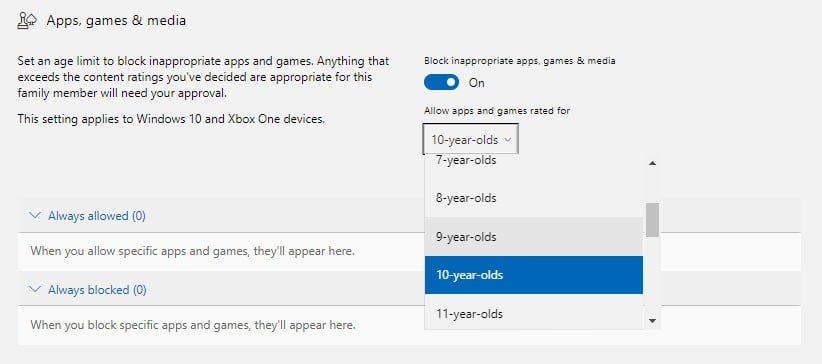
Once you set up content restrictions, your child will not be able to access Google Chrome, Firefox, or any browsers other than Microsoft Edge and Internet Explorer. If they try to open another browser, they will get a message telling them to ask an adult in their family for permission.
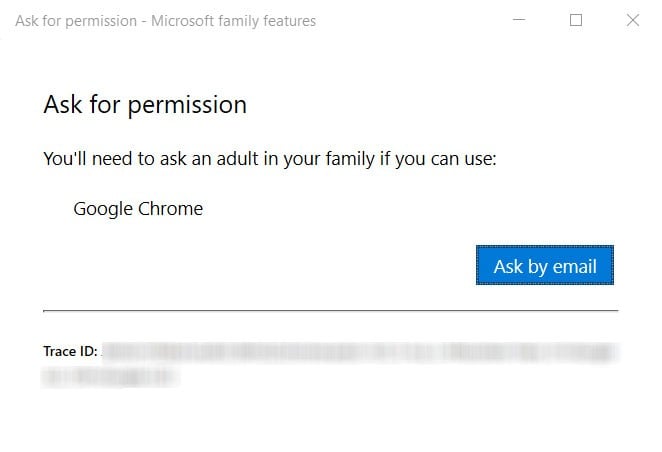
And, if a child tries to enter a URL for a site that you entered in the Always blocked list, they will get a message telling that that they need to ask an adult in their family to use that site.
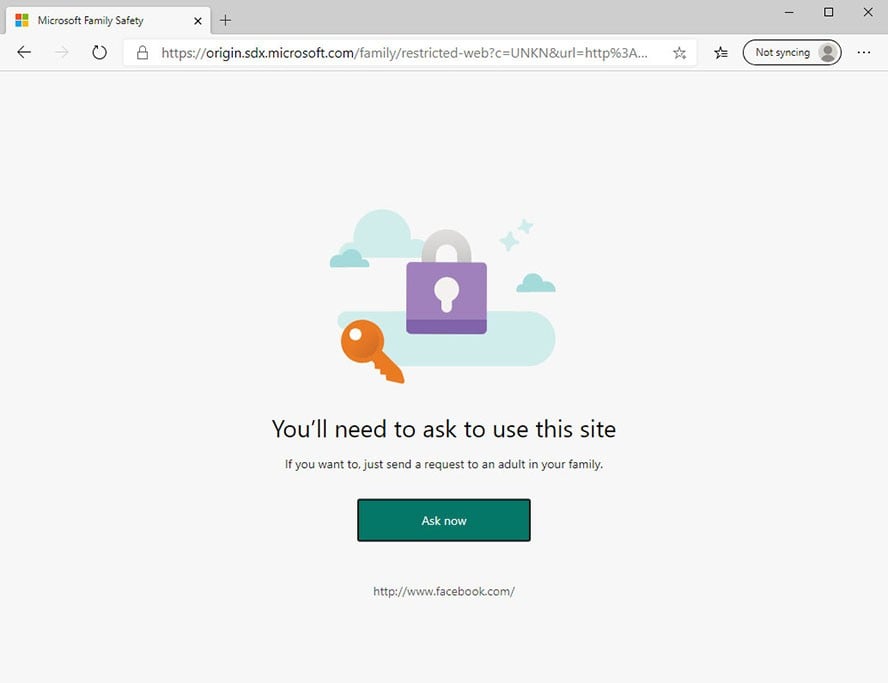
Finally, if your child tries to search for inappropriate content on Edge, they will see a message that says that they have to change their settings.
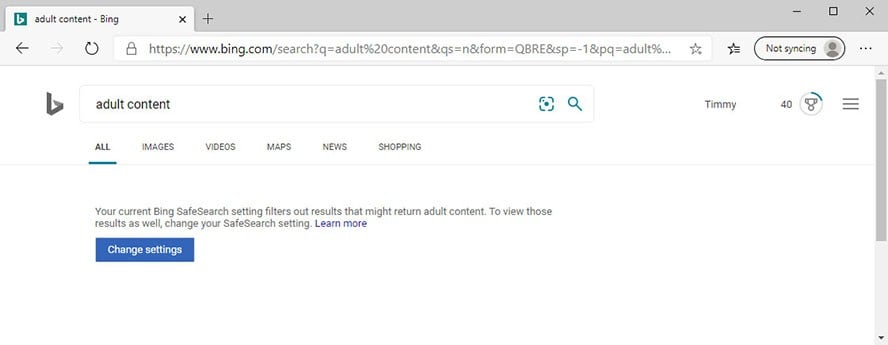
However, they will not be given the option to change their settings.
If you want to allow your kids to use Chrome, check out our step-by-step guide on how to block websites on Chrome.
How to Limit Your Child’s Screen Time in Windows 10
- Go to family.microsoft.com and click Screen time next to your child’s account.
- Then click the slider under Device limits to set your desired time limits.
- Next, click the blue bar next to a day of the week to set a time limit for that day.
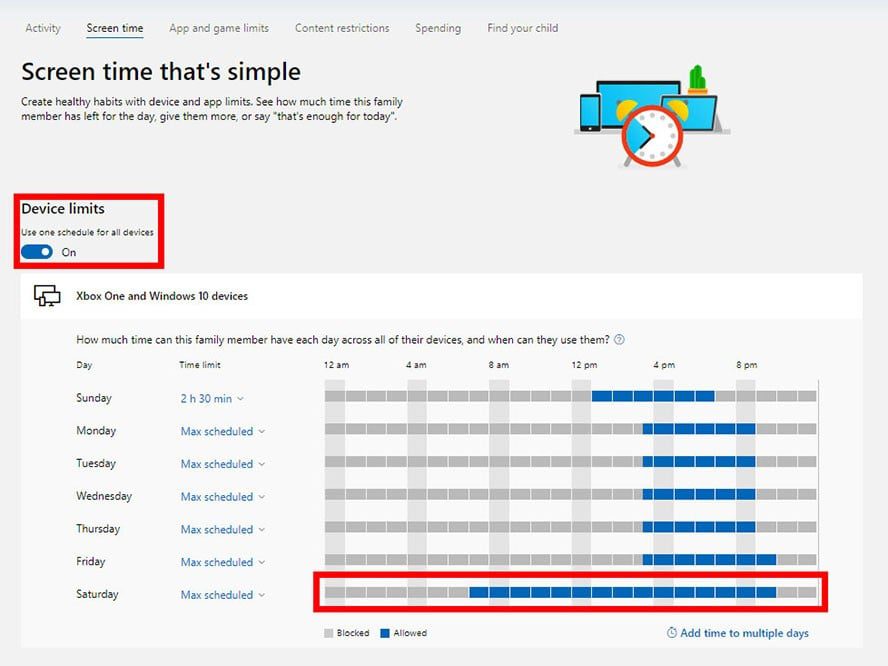
- Then click Remove to delete the default time limit.
- Finally, enter your desired time limit and click Save.
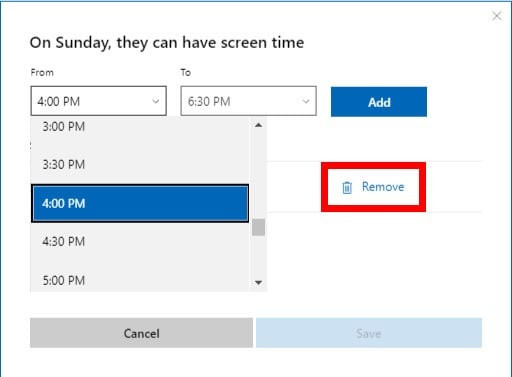
Once you set up your restrictions, you can then choose to be able to monitor your child’s account.
How to Monitor your Child’s Online Activity in Windows 10
- Go to family.microsoft.com and click Activity next to your child’s account.
- Then click the slider next to Activity reporting.
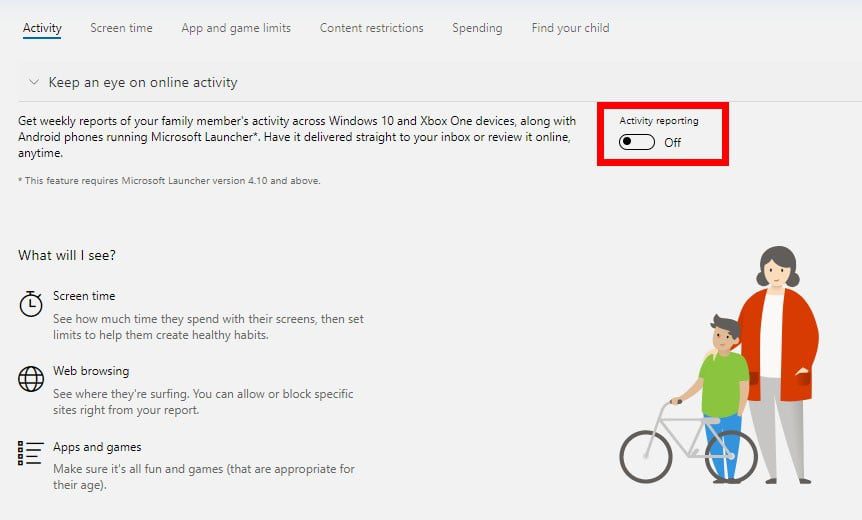
- You can then allow or block any webpage your child visited or tried to visit. You can also see each search query they typed in and any apps and games they played. Also, you can see then they visited any website, and how long they played any games or used any apps.
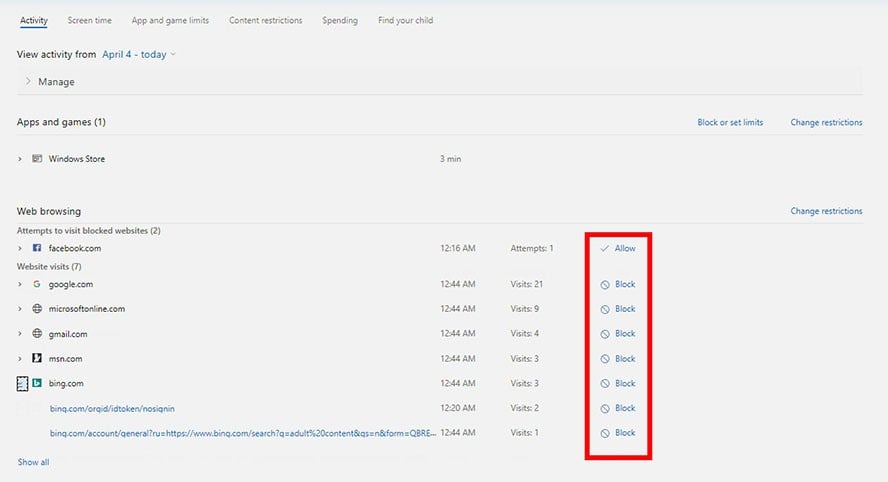
You can also click Spending in the menu above to allow your child to buy things without your permission. This is set to require your permission by default. Then you can add money to your child’s account and allow them to shop for apps and more online.
You can also click Find your Child and then turn on the feature to see where your child is. However, your child will need to have a Windows 10 phone or an Android device with the Microsoft Launcher app running.
